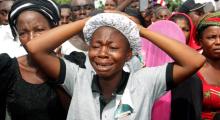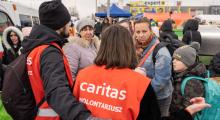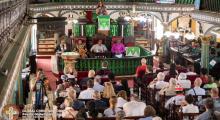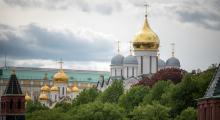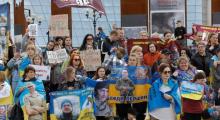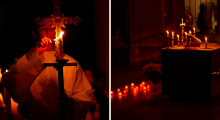Issued by the Catholic Center for Studies and Media - Jordan. Editor-in-chief Fr. Rif'at Bader - موقع أبونا abouna.org
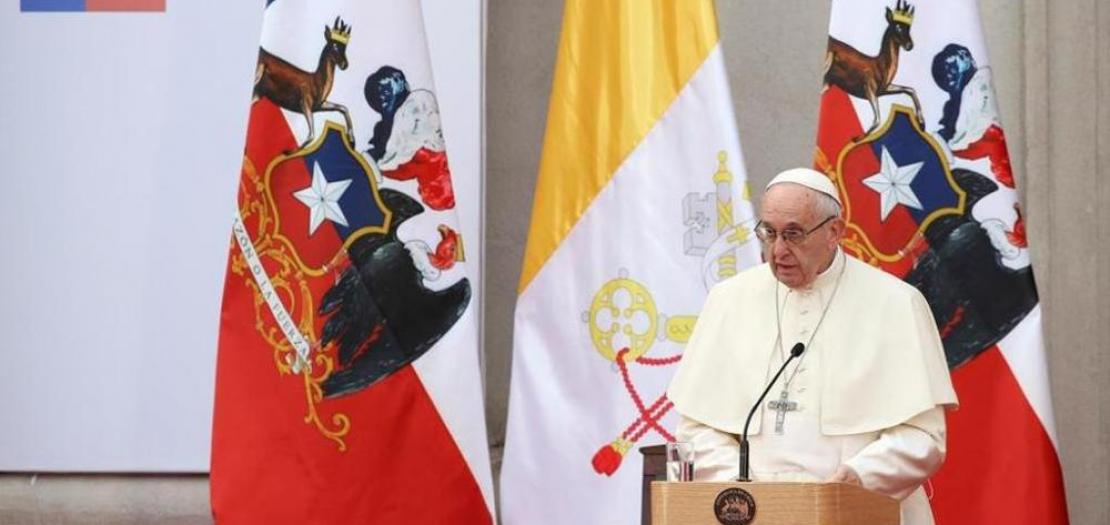
In his first speech in Chile, Francis asked forgiveness for the violence committed by priests, “make every effort to support the victims, as we commit ourselves to ensuring that such things do not happen again”. And calls on the political authorities to listen to the poor and “native peoples whose rights and culture need to be protected”.
In the country of Catholic Latin America, where the Church has lost much of its credibility in the face of public opinion and where protests are rife, Francis chooses to begin by asking forgiveness. In the face of the scandal caused by the case of Father Fernando Karadima, a charismatic and influential priest found guilty by the Holy See of child abuse in 2011, and other cases in Chile, Pope Bergoglio states that he feels “pain and shame at the irreparable damage caused to children by some ministers of the Church”. According to Bishopaccountability. org, about 80 Catholic priests have been accused of child abuse since 2000.
The Pope’s strong request for forgiveness, apart from being a recognition of responsibility for the Church’s inability to protect the little ones, is a way of trying to reassure the atmosphere of the visit, given that Father Karadima was the formator of many priests and some of them closer to him have become bishops in the country: the most burning case is that of Juan Barros, nominated by Francis bishop of Osorno after having been Military Ordinary. For years now he has been challenged in the diocese by groups of faithful for his closeness to Karadima.
In front of the Moneda presidential palace, designed by the Italian architect Gioacchino Toesca, a building named after having been destined in colonial times to house the national mint, Bergoglio was greeted by the outgoing President of Chile, Michelle Bachelet Jeria, daughter of an aviation general imprisoned and killed after Pinochet’s coup in 11 September 1973. The Pope then walked thorough the two large internal courtyards where the authorities, the diplomatic corps and representatives of the civil and cultural world were awaiting him.
In her welcome speech, a visibly moved Bachelet said, “Holiness, we welcome you with affection and hope. May your words encourage solidarity and tolerance, and help us to combat ignorance and selfishness. We are proud to have you with us”. The President also recalled John Paul II’s visit thirty years ago, in which the Polish Pope “met a wounded country in which freedom was lacking. It is nice to be able to say that Chile is now a different country, different paths have led us to grow, to strengthen democracy, and look at citizens as people and not as consumers as you have taught us. In these thirty years, we have passed from pain to hope, from fear to trust”.
Mrs. Bachelet then listed the challenges Chile faces today: to protect families, create jobs and respect the environment in the light of the Laudato si. We know that we have debts to society and that we must unite to overcome inequalities. We also need to close the debt with the Mapuche people - she added - we are ashamed of the vulnerability that our children suffer, we have a debt even with them”. “We cannot forget that it was the mediation of a Pope who prevented war, and let us not forget the members of the Catholic Church who gave their lives for those who were persecuted in the country”.
Taking the floor, Francis recalled that Chile “has distinguished itself in recent decades by the growth of a democracy that has enabled steady progress”. He noted that the recent general elections, which led to the appointment of the new President Sebastián Piñera Echenique, were a demonstration “of the solidity and civic maturity” that you have achieved, which takes on particular significance in this year marking the two-hundredth anniversary of the declaration of independence”. The Pope recalls, alluding to the dictatorship without naming it, that the Chilean people “had to face several turbulent times but managed to overcome them, not without pain”. Francis therefore recalled that peace and rights should never be taken for granted and that “Each new generation must take up the struggles and attainments of past generations, while setting its own sights even higher”. “Goodness - he explained - together with love, justice and solidarity, are not achieved once and for all; they have to be realized each day”.
Bergoglio invited not to forget that in Chile, despite his economic and social achievements, “many of our brothers still endure situations of injustice that none of us can ignore”. Here, then, is the challenge, “ to continue working to make this democracy, as your forebears dreamed, beyond its formal aspects, a true place of encounter for all” and where “everyone, without exception, feels called to join in building a house, a family and a nation”. A “generous and welcoming” Chile, with a people and political authorities capable of “listening”.
“This ability to listen - he continued - proves most important in this nation, whose ethnic, cultural and historical diversity must be preserved from all partisan spirit or attempts at domination, and inspire instead our innate ability to replace narrow ideologies with a healthy concern for the common good”. It is necessary, “to listen to the unemployed, who cannot support the present, much less the future of their families”. Listen “to the native peoples, often forgotten, whose rights and culture need to be protected lest that part of this nation’s identity and richness be lost”. We must listen to “the migrants who knock on the doors of this country in search of a better life, but also with the strength and the hope of helping to build a better future for all”. It is necessary “to listen to young people and their desire for greater opportunities, especially in education, so that they can take active part in building the Chile they dream of, while at the same time shielding them from the scourge of drugs that rob the best part of their lives.” And, “To listen to the elderly with their much-needed wisdom and their particular needs. We cannot abandon them”.
Francis then asked to “ To listen to children who look out on the world with eyes full of amazement and innocence, and expect from us concrete answers for a dignified future. “And here - he said - I feel bound to express my pain and shame at the irreparable damage caused to children by some ministers of the Church. I am one with my brother bishops, for it is right to ask for forgiveness and make every effort to support the victims, even as we commit ourselves to ensuring that such things do not happen again”.
Finally, Bergoglio invites us – especially today – to give preferential attention to our common home: to foster a culture that can care for the earth, and thus is not content with merely responding to grave ecological and environmental problems as they arise. This calls for boldly adopting “a distinctive way of looking at things, a way of thinking, policies, an educational programme, a lifestyle and a spirituality which together generate resistance to the assault of the technocratic paradigm” that allows powerful economic interests to prevail over natural ecosystems and, as a result, the common good of our peoples.
After the meeting Francis met privately with President Bachelet in the Salón Azul of Moneda.


